Insomnia affects every third person in America, but is it severe enough to harm your work life? Can you get disability for insomnia? And if not, then how can you claim disability for this condition? Let us find out the answers!
Contents
Insomnia is a condition in which a person cannot sleep properly. It is one of the most neglected conditions, but chronic insomnia affects almost 33% of adults in the US. It is not relatively easy to say whether it is a disability or not.
The Social Security Administration does not list insomnia as a disability. But in most cases, insomnia is a side effect of another health condition.
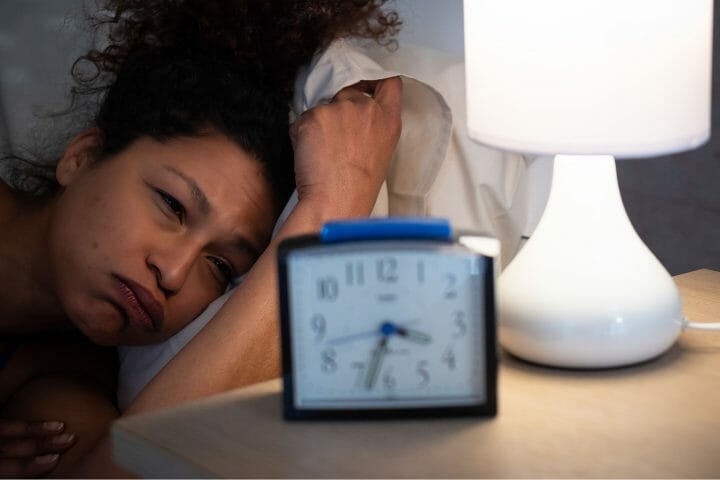
You’ll not get a disability grant if you have insomnia alone. Still, if any physical or mental disorder accompanies it, your case might be eligible for a disability grant. Let us figure out what conditions might be causing your insomnia and how you can get disability benefits.
What Is Insomnia?
Insomnia is a sleep-related disease or condition that causes people to have difficulties falling asleep or remaining asleep. Doctors also call it a sleep disorder. Insomnia can be severe or mild, and it may last for one night to a few weeks.
Insomnia is a condition that is far more prevalent than any other today. About 70 million Americans every year suffer from sleep disorders. The older adult population is the main target of this condition; about 33% to 50% of older adults suffer from chronic insomnia.
On the other hand, severe insomnia can stay three nights a week for three months. Acute insomnia is a short-term condition that can come and go in periods. Chronic insomnia can last for an extended period.
Insomnia Classification Based on Underlying Cause
Primary insomnia
In this type of insomnia, there are no underlying problems other than your sleep problems.
Secondary insomnia
This type of insomnia is linked with other health conditions such as asthma, arthritis, depression, cancer, etc.
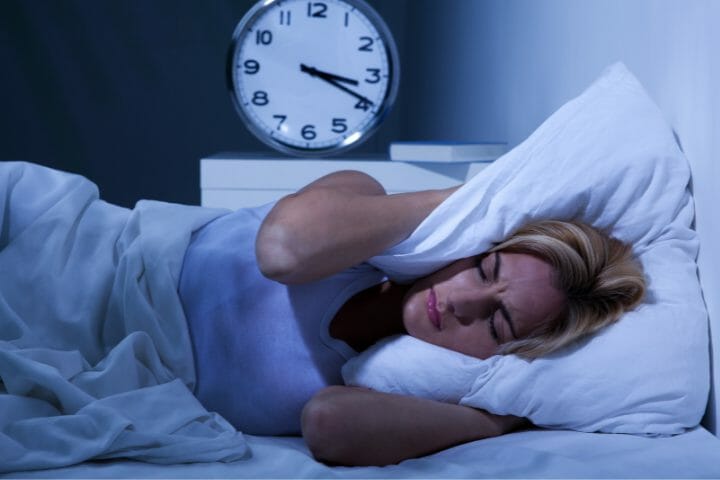
Insomnia Classification Based on severity
Short Term
The first category is short-term insomnia which is also known as acute insomnia.
Chronic Insomnia
The long term insomnia is known as chronic insomnia. This is a condition in which a person cannot sleep at least three times a week. A patient will only qualify as a chronic insomnia patient if they suffer for three months.
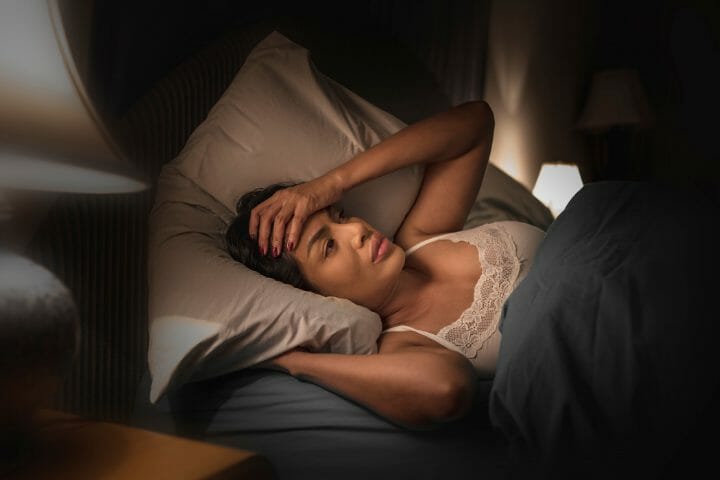
Insomnia Classification Based on How It Affects A Person
Sleep-onset insomnia
A person suffering from this type of insomnia faces trouble getting to sleep.
Sleep-maintenance insomnia
An individual suffering from this type of insomnia has trouble staying asleep through the night. They might also have a problem with waking up too early.
Mixed insomnia
In this type of insomnia, the patient has trouble falling asleep and staying asleep at night.
Paradoxical insomnia
This is an insomnia condition the patient has a habit of underestimating the amount of time they are sleeping for. The patient has a feeling that they sleep less than they do.
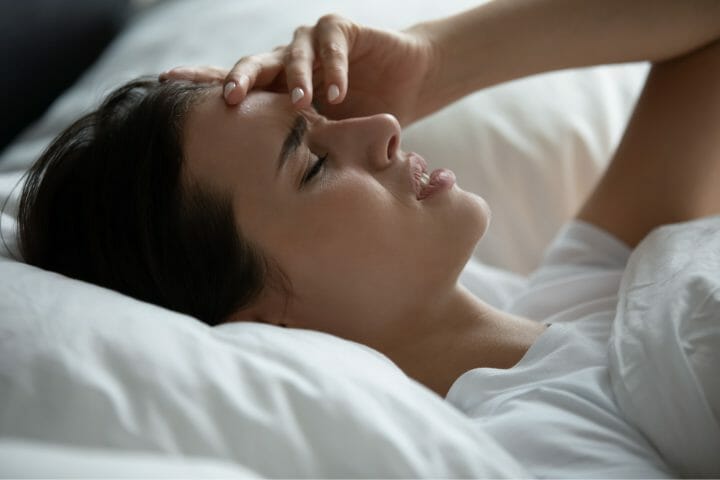
Symptoms Of Insomnia
There are several causes of insomnia that can contribute to worsening the condition. Some of these symptoms are given as follows.
- Depression, anxiety, or irritability
- Sedentary lifestyle
- Excessive tiredness during daytime
- Lack of concentration
- Waking up early or getting up several times in the night
- Headaches
- Decreased memory
- Constipation or upset stomach
This list is not exclusive. Different people show different symptoms of insomnia. Hence every case is a unique case.
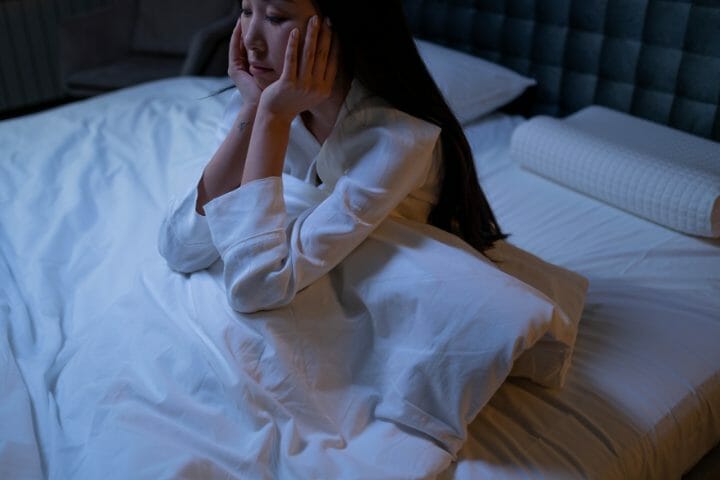
Underlying Causes Of Insomnia
Other than the primary causes, there can also be some secondary causes that can also cause insomnia are:-
- A mental disorder of an individual such as anxiety or depression.
- Insomnia can also come to you as a side effect of medications, allergies, and colds. High blood pressure, asthma, and depression medications can result in insomnia.
- If a person is suffering from chronic pain and discomfort at night, it can also lead to insomnia.
- If an individual is addicted to tobacco, alcohol, caffeine, or drugs, they can also fall prey to insomnia.
- Hyperthyroidism and other problems that can create endocrine in the body are also bad for insomnia.
- Similar and other sleeping disorders like sleep apnea or restless leg syndrome can worsen your insomnia.
- Too much stress is a significant cause of insomnia. This stress can be related to actual and essential life events of the individual suffering from this condition. Some of these momentous events can be the loss of someone, changes in jobs, moving away from someone, divorce, etc.
- Symptoms that can also affect insomnia are light, temperature, and noise changes.
- If a person is going through some changes that can disrupt their sleep schedules, such as a new working schedule, jet lag, some bad habits, and other things that can disturb their sleep cycle.
- Sometimes insomnia can also be caused by a person’s genetics. According to some research, some families are more prone to insomnia.
You might also like to read: Can You Get Disability For Fatty Liver Disease?
Is Insomnia A Disability?
No, insomnia alone is not a disability in the eyes of SSA. Instead, it can be classified as a condition. In this condition, the person suffering from it cannot sleep properly.
Insomnia is a challenging condition to deal with. Your whole body feels weak and exhausted when you cannot sleep properly. According to the Social Security Administration, you can qualify for a disability grant if you have insomnia or other physical or mental condition. a complicated ailment
If you have chronic insomnia and have severe side effects, such as heart issues, depression, anxiety, etc., it can help your case get a disability grant. For example:
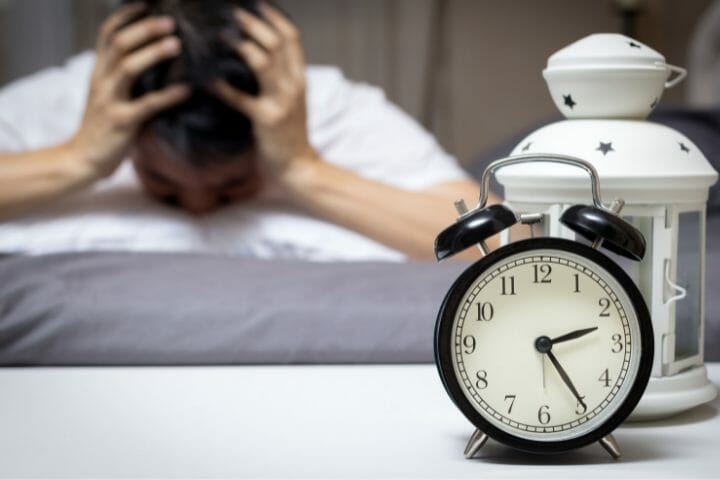
- Heart Diseases: You can claim benefits under listing 4.02/04 if you develop Heart disease due to insomnia.
- Organic Mental Disorders: Listing 12.02 deals with Organic mental disorders, including mood changes, low concentration, and memory loss. If you develop these disorders due to insomnia, you can claim benefits.
- Depression: You can consider listing 12.04 if you suffer from depression resulting from insomnia. You can claim for anxiety under listing 12.06
- Digestive Disorders: If you have insomnia, you can consider listing 5.02/06/07, which deals with Digestive system problems caused by chronic gastrointestinal symptoms.
Can You Get A Disability For Insomnia?
Yes, if insomnia causes or is caused by several other health issues, you can get a disability. It is not that easy to get a disability grant for insomnia. According to medical experts, insomnia is not a medical disability. Instead, it is a medical condition that affects a person’s sleep cycle. However, you can qualify for a disability grant if you have insomnia and other disorders.
If you list insomnia as a side effect of another condition, you can take advantage of this situation and then qualify yourself for a disability grant.
What Are Your Chances Of Getting A Disability For Insomnia?
If you apply for disability health benefits based on insomnia alone, getting a disability grant is pretty slim. Even if you appeal, it is also quite challenging to get a disability grant. Even after all the ill effects of insomnia on a person, it is still not listed sufficiently for you to qualify for social security disability benefits.
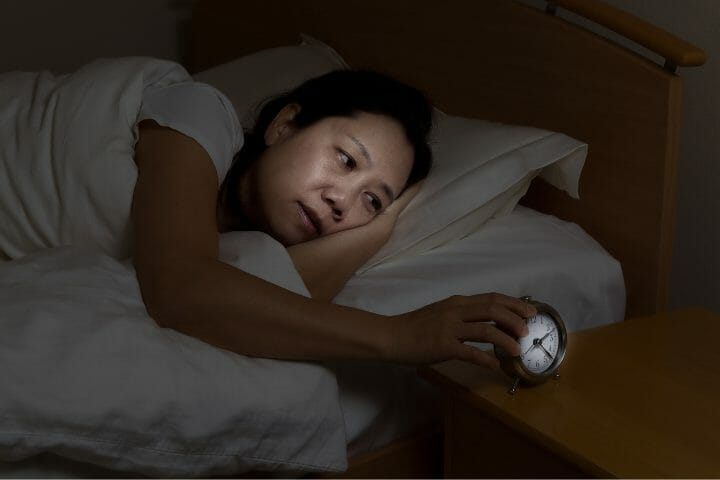
How to Qualify for a Social Security Disability with Insomnia?
If you wish to qualify yourself for social security disability with insomnia, you should meet all the conditions specified under SSA. Chronic insomnia can seriously affect your physical and mental well-being.
Many conditions can cause insomnia, as listed in the blue book. If you wish to qualify, you need to show other disorders you have insomnia. The effect of insomnia on you and the other conditions will make your claim stronger.
To qualify for SSD benefits with insomnia, you must show that either:
- Insomnia is due to a medical condition under a Blue Book listing. OR
- You have a listed medical condition due to insomnia. OR
- Your Residual Functioning Capacity has gone down to zero, and you cannot do any work based on your education, training, or experience.
You might also like to read: Can You Get Disability For Being Obese?
VA Disability Rating For Insomnia
The VA disability rating for insomnia can be listed anywhere from 0 to 100%, with breaks at 10%, 30%, 50%, and 70%. Your rating will depend upon the duration, severity, and frequency of the symptom and how it affects your work and social life.
If, as a veteran, you are looking for social security benefits, then with a 0% VA score or disability rating, you don’t qualify for disability benefits.
To be eligible for a VA Rating for insomnia, a veteran must meet three criteria by law:
- Your insomnia is a result of any active-duty military service or any connected secondary service that caused insomnia.
- A medical diagnosis of insomnia in VA medical records, service treatment records, and private medical records.
- Symptoms of insomnia and its severity.
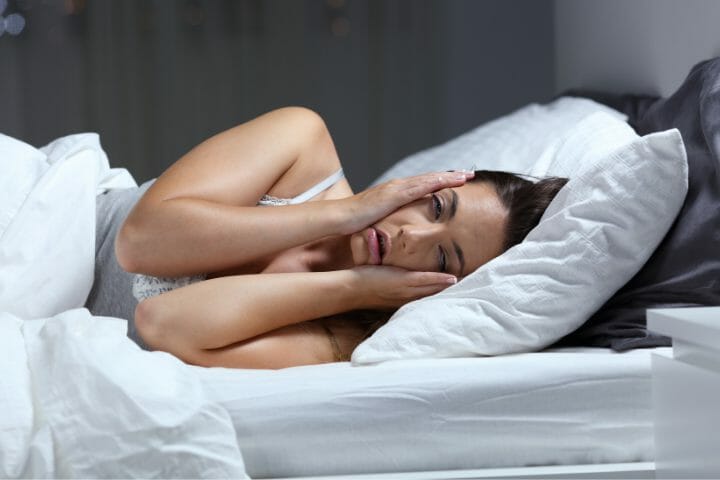
What percentage of disability is insomnia?
According to the national sleep foundation, insomnia is a chronic sleeping condition. The person who has insomnia usually complains that they cannot sleep appropriately despite having a lot of opportunities to sleep correctly.
The VA rating for insomnia was changed to 10 percent through a ruling made on 9th of Jul’12. However, this is not the maximum disability rating for insomnia, which is why the claim is still in appelated status.
Can You Get Disability For Other Sleep Related Disorders?
Can You Get A Disability For Idiopathic Hypersomnia?
Idiopathic hypersomnia is a condition or a sleep disorder identifiable when the patient has excessive sleepiness. People who suffer from this condition find it very hard to stay awake. Such individuals find it very hard to focus on work, and they also have lower performance levels than other employees.
Usually, these people cannot stay awake for more than a couple of hours. If you are applying for a claim for idiopathic hypersomnia, you need to make sure that you are submitting all medical evidence. Results of necessary tests include CT scans, polysomnography tests, and EEG tests. However, doing all this still doesn’t guarantee your application to be selected.
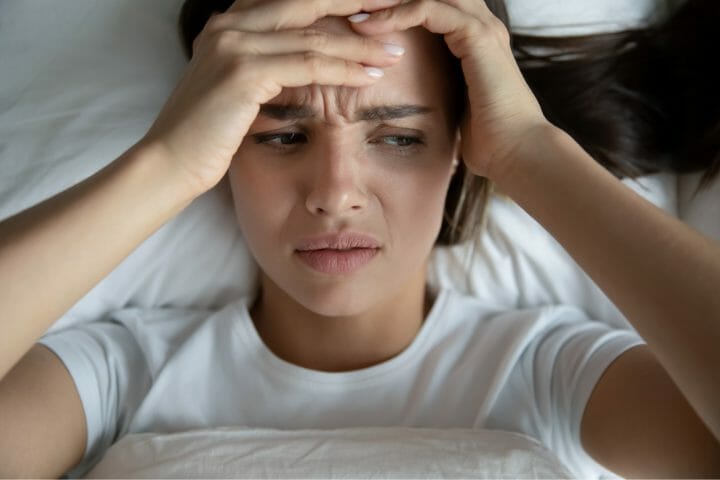
Can You Get A Disability For Narcolepsy?
Narcolepsy is a chronic disease that can cause overwhelming daytime drowsiness. The social security administration does not consider narcolepsy as a disability. You might get disability benefits if the symptoms of this condition or disease interfere with the person’s job and ability to work full time. If the person cannot work correctly, they can get disability benefits.
You might also like to read: Can You Get Disability For Alcoholism?
Is Sleep Apnea A Disability?
Sleep apnea is not considered a disability by the social security administration. The SSA does have listings for breathing disorders, mental deficits, and heart diseases. If you qualify or meet the criteria for any one of the categories, you will automatically be eligible for disability benefits.
Sleep apnea is a very concerning problem in which the person cannot sleep. Obstructive sleep apnea typically happens due to obesity. Sleep apnea is associated with the soft tissues of the mouth and the throat.
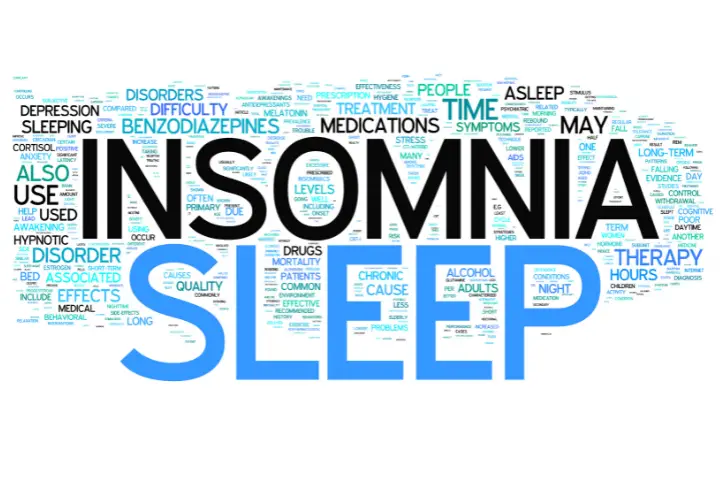
When a person is sleeping, the throat and tongue tissues can block the airway, and a blocked airway can lead to rapid breathing during sleep apnea. The breathing should repeatedly stop and start.
A person can suffer from sleep apnea due to physical and mental issues. If you snore too loudly and still feel tired throughout the day, you will likely suffer from sleep apnea. Mental stress and anxiety can also be significant contributors to the severity of sleep apnea in people.
Frequently Asked Questions
Can insomnia affect your ability to work?
The answer to this question is yes, insomnia harms your work life. Since, in most cases, you are unable to sleep properly, you are less energy. As a result, people who have insomnia take more time off from their work than people who have a proper sleep.
According to some research and reports, insomnia causes about 7% of costly workplace accidents. Insomnia also results in poor work performance, and the workers start being less productive. There is also a high chance of insomnia in some severe cases, leading to accidents at work.
Does insomnia fall under FMLA?
No, the FMLA does not cover insomnia. FMLA covers time off work to look after and care for a family member. The FMLA will not cover you for catching up on your sleep instead of looking after a family member.
The regulations of the FMLA do not state that an employee is eligible to take time off their work schedule to sleep. The FMLA considers insomnia as an insufficient basis for coverage for employees.
Is insomnia a mental illness?
No, insomnia is not considered a mental illness. Instead, it is regarded as a psychological or physical illness symptom. This is a condition that doctors diagnose in most cases.
Insomnia is far from a mental illness. It is a mental state of a person in which the person’s brain is preoccupied, so they cannot sleep properly. Insomnia can have some serious underlying causes, such as stress or anxiety, or it can also be due to a poor lifestyle and sleep cycle.
Wrap Up
Getting a disability grant for insomnia is not available if you fill it for just having insomnia. But if you have sleeplessness as a side effect of some other condition, you are more likely to get a disability grant. Having proper medication and proof of the state will also help your case get the commission.
Thank you for reading the article, we hope that we have covered everything you needed to know about insomnia, getting disability benefits for it, and what you need to do to file a claim. For any further questions do not hesitate to write to us.

